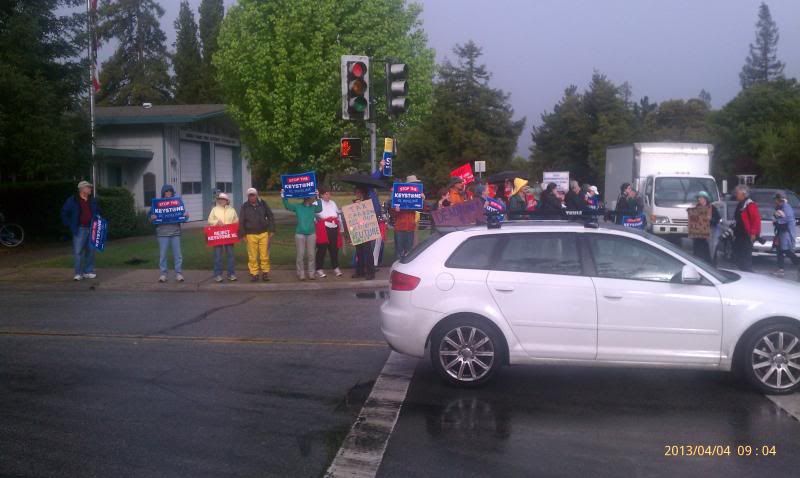I don't think your understanding what I'm saying (I shouldn't have used policy since I'm not referring to just votes but their view points on issue). I'm not talking about trying to stop people from trying eliminate homophobia if people agree on the public policy issue but rather the attempt to stop people from using their religion or changing opinions because of experiences to justify their beliefs. I get the feeling some people want everybody to view issues the same way. I think that's flawed. I have no problem with people wanting everybody to agree on the issues but just wanting everybody to agree on thought processes that get them there.
If by "same way" you mean a way that doesn't take supernatural claims into account when making real-world policy decisions, then yes, I'm admittedly guilty of wanting people to "view things the same way". Whether those supernatural claims are trickle-down economics, or divine beings, I generally prefer a society where fewer people make decisions based on those things.
If that's a bad thing, *shrug*.
I think people should try to get people to change their viewpoints but we shouldn't be evangelizing "rational secular thinking" in politics (in education and science class I think this is important).
I guess I don't see why there needs to be a differentiation between education, science, and politics. All 3 should deal with, well, reality. Since when has appealing to the supernatural ever been a better way of making a political decision?
Why not prefer a society where the gay rights discussion could be had based on its real world effects, not on whether it offends some person's preferred supernatural being?
Considering that the driving force behind bigotry against gays has been people's views of what a particular divine being thinks of them, a society that doesn't encourage that rationale probably would've had legal same-sex marriage a long time ago.
We need to target the different things that people use to justify their beliefs to get agreement on issues. If people want to use science to approve of homosexuality or god's love I don't see the problem as long as people realize homophobia is wrong.
And what happens when someone gets a vision that god told them that homophobia is correct? We have a bunch of those people already, after all.
After all, if we've conceded as a society that "yes, what your divine being thinks about this issue is an acceptable way of making decisions about public policy", it's not like you can say they're wrong on a religious basis. Sure,
I guess people can throw bible quotes back and forth at each other, in hopes that Nice Jesus will win out over Mean Jesus but ultimately both sides aren't really saying anything solid and lasting. At some point the progressive would have to appeal to how it affects real people and real lives, as that's where the better, and more solid foundation of a case is made.
I'm just saying I'd prefer to skip to that part. And I prefer to live in a society where the primary social attitude is that we
should skip to that part. Because I argue that if everyone knew we should skip to that part, the gay rights debate would've been over a long time ago.
It's a tough goal, but I don't think it's an impossible one. Though of course, there's nothing wrong with accepting the victories with the Rob Portman's of the world, while still keeping in mind the larger issue that effectively created the problem in the first place.
My problem with trying to get people to change how they think rarely works, yes you can probably talk about anecdotes but I think just changing views in whatever way (religion, experience, logic) is more important.
We'll have to agree to disagree, as I think you're being a bit fatalistic. You're talking to someone right now that "changed how they think", so it's obviously not some impossible thing. Entire societies that were formerly majority religious (and still even have state religions) often have majority non-religious populations now. I don't think "welp, religions gonna religion, so we always have to discuss everything on their terms" is as obviously true as some people imply. There may be some situations where it's useful...and other cases where it's not.
Obviously, it's not an overnight process, and I even agree that as a short term process with certain people, appealing to them through their religion can work. I just don't think we should leave it at that, or pretend like we can't do better.
I wish more people were rational (though I have problems with rationalism as well) but your not going to force people into that. They need to come to it in their own way.
I don't know why discussion/debate is somehow "forcing people to be rational" (why does this point come up so often when it comes to discussion of supernatural beliefs?). No one's saying to lock up people who base their politics on their supernatural beliefs, lol. We challenge supernatural claims (zero taxes, infinite revenues!) all the time here when it comes to the Republican party, why the sudden fear to challenge supernatural claims when they affect other policies like gay rights?
Now sure, I'm not opposed to getting the support of a Republican on various issues, so for example, if an individual reinterprets things so that they somehow find a way to fit something like nationalized health care and gay rights into the cut-taxes-at-all-costs Republican platform, yay for them. And yay for us, that's at least another vote.
But I'd much rather just have more Democrats and/or liberals in the first place.




